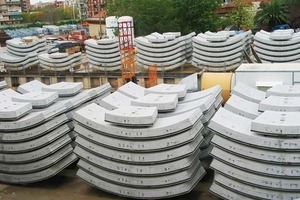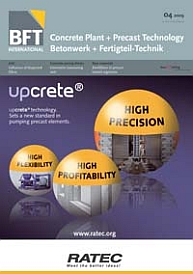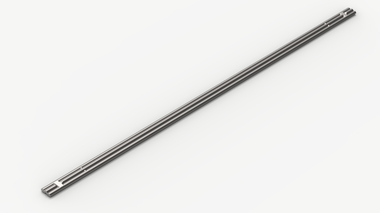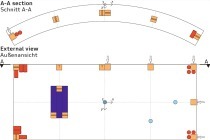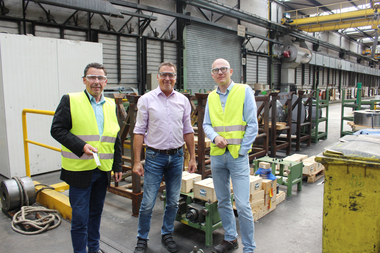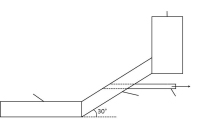Use of steelfiber reinforced concrete in precast tunnel segment production
There currently exists a growing interest in precast tunnel segments made of steelfiber reinforced concrete (SFRC) that can be installed with a tunnel boring machine (TBM) [3, 8]. These segments are today still often made of conventionally reinforced concrete. The addition of fibers and the resulting higher ductility, however, is gaining increasing attention among designers and manufacturers since in this way the arched reinforcement in the segments can be partly or even entirely substituted by steel fibers. This can lead to considerable savings in the production. In this first part, the most important aspects on the use of steelfiber concrete for mechanical tunnel driving are presented and illustrated on the example of the “Hobson Bay Sewer Tunnel” in Auckland/New Zealand.
Steelfibers are more and more frequently used in structural concrete members since they increase the ductility of the concrete matrix by providing the brittle construction material concrete with a post-cracking strength that can be taken into consideration in the structural design. The fibers moreover increase the impact strength and the fatigue strength and have a crack-distributing effect so that the cracks that do occur are smaller [12, 1]. Steelfibers are in particular used for increasing the loadbearing capacity of concrete and reinforced concrete structures. Apart from this, special...

